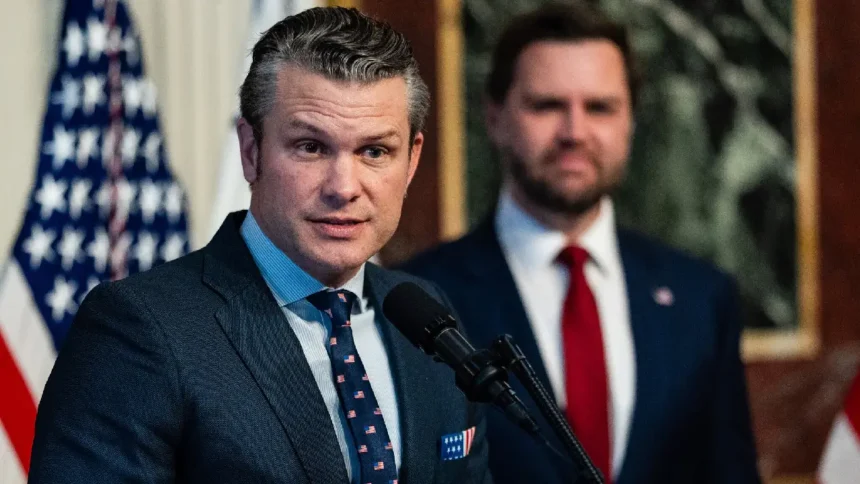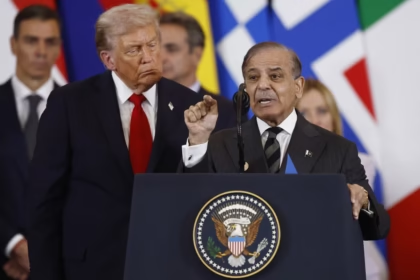In a development stirring alarm on Capitol Hill and inside the Pentagon’s corridors, Defense Secretary Pete Hegseth has issued a sweeping memo that restricts senior military officials from engaging with Congress unless they first receive approval through the Department’s legislative affairs office. The directive, formalized on October 15, reflects a sharp turn toward tighter internal control at the Pentagon — and it comes in the context of heightened controversy over recent U.S. strikes on suspected narco-trafficking boats.
According to the directive, any “unauthorized engagement” with lawmakers — no matter how routine — could “undermine Department-wide priorities critical to achieving our legislative objectives.” The new policy applies to the highest levels of the military, including the chairs of the Joint Chiefs of Staff and the secretaries of the services. A follow-up memo dated October 17 created a working group to further refine the guidance.
For lawmakers accustomed to direct access to senior Pentagon officials, the changes are unsettling. Both Republican and Democratic senators have publicly voiced concern. One ranking senator warned that the restriction may complicate congressional oversight of military operations and hamper timely information flows into the legislative branch. Congressional staffers say the timing is especially sensitive given the administration’s recent expansion of strikes on maritime vessels alleged to be trafficking narcotics.
What’s Behind the Shift?
The broader context involves the Trump administration’s decision to escalate military strikes against boats believed to be smuggling drugs toward U.S. shores. Since September, U.S. forces have destroyed multiple vessels in the Caribbean and eastern Pacific, resulting in dozens of reported casualties. These operations have been justified by the administration as a defensive use of force against “narco-terrorists” under a declaration of non-international armed conflict — a move that bypasses full congressional approval.
Those strikes and the surrounding secrecy have triggered unease in Congress. By placing strict limits on military communication with lawmakers, Hegseth’s directive appears calculated to control the narrative on these operations, avoid unexpected disclosures, and contain potential political fallout. Pentagon officials say the changes aim to improve “accuracy and responsiveness” in communications, but critics say the message is clear: fewer independent voices and less transparency.
Oversight at Risk
Congressional oversight is a bedrock principle in U.S. governance. For decades, lawmakers have relied on direct briefings, hearings and daily exchanges with military officials to monitor operations, shape policy and supply funding. Under the new rule, any senior officer who speaks to a member of Congress or relevant staffer must route the request through the Office of Legislative Affairs — a bottleneck that many say could slow or suppress information.
“It’s not just a communications issue,” said one Senate aide. “This is about accountability. You can’t have a system where Generals need permission just to talk to their oversight committee.” Some lawmakers are pushing for immediate clarification or reversal — warning that the policy could violate the Constitution’s separation of powers or hamper Congress’s ability to perform its oversight function.
Possible Motivations & Consequences
Analysts suggest several motives for the policy shift:
-
Narrowing public exposure: The Pentagon may be reacting to media or congressional disclosures regarding the boat-strike campaign and seeking tighter messaging control.
-
Shielding operations: With much of the boat-strike activity classified or legally contested, limiting communications may reduce the chance of legal or political leaks.
-
Centralizing authority: Hegseth appears to be consolidating control of messaging around military operations, which aligns with the administration’s broader approach to executive power.
But the consequences could be serious. A restricted information flow could lead to misalignment between Pentagon actions and congressional authorization or intent. It may also embolden internal culture changes—where dissenting voices are silenced, and commanders feel pressure to follow directives without recourse. For external observers, it raises questions about the legitimacy of recent military actions and the transparency of decision-making processes.
The Boat-Strike Context
The communications restriction cannot be separated from the administration’s broader strategy of striking drug-trafficking vessels in international waters, often without detailed public disclosure of evidence or Congressional debate. As one defense analyst observed, “When you’re conducting operations where oversight is already minimal, the last thing you want is free-flowing talk among military officials about it.”
Indeed, multiple senators have demanded that Hegseth release copies of strike orders, legal justifications and after-action reports related to the maritime campaign. In one instance, a senator described the strikes as a “war without declaration,” raising serious legal and constitutional concerns. That Push for transparency is now colliding with Hegseth’s policy crackdown.
What Comes Next?
The standoff raises important questions: Will Congress push back against the new policy or revise defense-authorization language to restore direct access? Will the Pentagon provide clearer guidance and exemptions, or is this the beginning of a larger shift in civil-military relations? And importantly, how will the public and foreign governments view U.S. military operations that proceed under tighter internal controls and less external scrutiny?
For now, the memo stands. Pentagon officials say it will not change the information Congress receives, but lawmakers remain skeptical. Some staffers are already documenting how routine informational passes have been delayed or flagged for approval, and they warn that the pattern could recur.
Why This Matters
This story intersects national security, legislative power, democratic oversight and executive control. It is not merely an internal memo—it reflects a deeper battle over who gets to tell the story of U.S. military force, and whether that story is subject to checks and balances. With high stakes including foreign-policy ramifications and domestic constitutional concerns, the issue warrants attention.
In short: When the Pentagon imposes a gag rule on its senior officials, the consequences extend far beyond internal discipline — they affect how America wages war, how it interacts with Congress, and how it defines the limits of military power.











